Episodes

Tuesday Aug 27, 2019
Making a Good Beginning with Dr. Glenn Arbery
Tuesday Aug 27, 2019
Tuesday Aug 27, 2019
“The beginning is the most important part of the work,” wrote Plato in The Republic and we at Wyoming Catholic College have begun.
This past Saturday our Wyoming Catholic College freshmen emerged from the wilderness after twenty-one days backpacking. Then on Sunday as part of our eighteenth convocation and matriculation ceremonies, each freshman signed the leather-bound student register book. Our faculty took their annual oath of fidelity to the teachings of the Catholic Church. Our bishop, Stephen Biegler was with us to celebrate Mass. And classes started today, Tuesday August 27.
We are, it seems, beginning the 2019-20 school year well.
Presiding over the weekend’s events and over the college as a whole is president Dr. Glenn Arbery, our guest on this After Dinner Scholar.
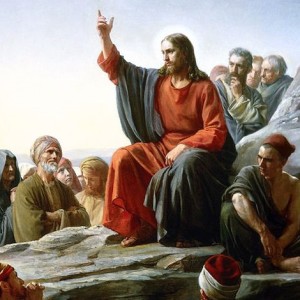
Tuesday Aug 20, 2019
The Challenge of the Sermon on the Mount with Dr. Jeremy Holmes
Tuesday Aug 20, 2019
Tuesday Aug 20, 2019
And Jesus said, “You have heard that it was said to the men of old, ‘You shall not kill; and whoever kills shall be liable to judgment.’ But I say to you that everyone who is angry with his brother shall be liable to judgment; whoever insults his brother shall be liable to the council, and whoever says, ‘You fool!’ shall be liable to the hell of fire.”
Those of us who have brothers or sisters or spouses can take little comfort from those words of Jesus. With those close to us getting angry, hurling insults, and yelling “You fool!” (or more likely “You idiot!” which expresses the Greek better) comes as second nature.
In fact, if we’re honest, the entire Sermon on the Mount (Matthew chapters 5 to 7) stands as an enormous challenge to the way we do most things most of the time.
This summer at PEAK, Wyoming Catholic College’s high school program, theologian Dr. Jeremy Holmes taught the Sermon on the Mount.
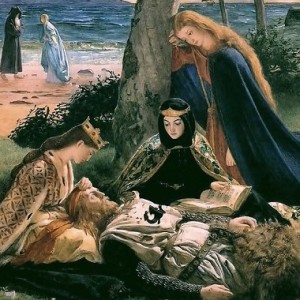
Tuesday Aug 13, 2019
Tuesday Aug 13, 2019
To judge by the piles of books, reels of movie film, games, prequels, and sequels, it’s safe to say that the stories of Camelot, the Round Table, and King Arthur hold a special place in our imaginations.
The stories surrounding Arthur have it all: love and romance; marriage and adultery; noble and good deeds, dishonorable and evil deeds; friendship and betrayal; lively feasts and deadly battles; magical swords and malicious witchcraft; heroes and villains; valiant, true, and brave knights and vile scoundrels. Camelot! It all started so well and ended so badly.
This summer, high school students attending Wyoming Catholic College’s two-week long PEAK program studied the Arthurian stories with this week's guest, Dr. Tiffany Schubert.
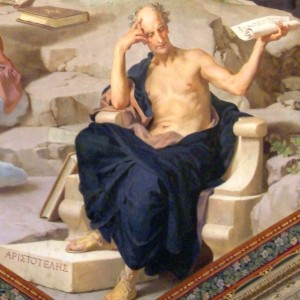
Tuesday Aug 06, 2019
Friendship: A Philosophical Perspective by Dr. Pavlos Papadopoulos
Tuesday Aug 06, 2019
Tuesday Aug 06, 2019
How important are friends? Aristotle observed that no one would choose to live without friends even if he or she had all the other good things of life.
Aristotle also observed that there are different kinds of friendship and that no all friendships are what he called “complete friendships.” Some are friendships of utility—business partners, vendors, baristas. Others are friendships of pleasure—fishing buddies, tennis partners, or even lovers. Not that all such friendships are necessarily bad, but that all are incomplete.
This is the last of our summer podcast series from the 2019 Wyoming School of Catholic Thought where we considered “No Greater Gift: Friendship from The Iliad to Facebook.” In it Dr. Pavlos Papadopoulos led us through Aristotle’s discussion of friendship in The Nicomachean Ethics books 8 and 9.
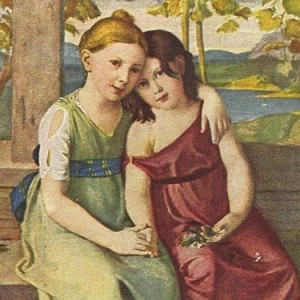
Tuesday Jul 30, 2019
Friendship in an Age of Romance by Dr. Tiffany Schubert
Tuesday Jul 30, 2019
Tuesday Jul 30, 2019
“I am distressed for you, my brother Jonathan;” lamented King David, “very pleasant have you been to me; your love to me was wonderful, passing the love of women.” (2 Samuel 1:26)
Understanding the kind of friendship that existed between David and Jonathan is difficult in our culture. In large measure this is because we tend to believe that the height of love is romantic love. The notion that Jonathan’s love to David passed the love of women thus sounds at least suspect.
But the idea that romantic love is the greatest love was not part of the culture of ancient Israel. It was not part of the culture of ancient Greece—the world of Achilles and Patroklos. It was not part of the culture of Europe until… well, Dr. Tiffany Schubert can explain. At the 2019 Wyoming School of Catholic Thought, Dr. Schubert began her discussion of the poetry of friendship by describing how the exaltation of the romantic through the poetic tradition has become a detriment to us as we try to form deep, committed friendships.
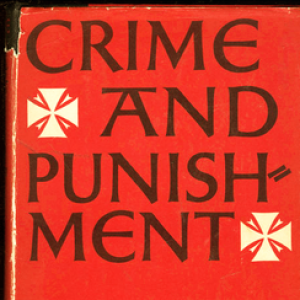
Tuesday Jul 23, 2019
"Unexpected Friendship: The Murderer and the Harlot" by Dr. Virginia Arbery
Tuesday Jul 23, 2019
Tuesday Jul 23, 2019
“On an exceptionally hot evening early in July a young man came out of the garret in which he lodged in S. Place and walked slowly, as though in hesitation, towards K. bridge.
“He had successfully avoided meeting his landlady on the staircase. His garret was under the roof of a high, five-storied house and was more like a cupboard than a room. The landlady who provided him with garret, dinners, and attendance, lived on the floor below, and every time he went out he was obliged to pass her kitchen, the door of which invariably stood open. And each time he passed, the young man had a sick, frightened feeling, which made him scowl and feel ashamed. He was hopelessly in debt to his landlady, and was afraid of meeting her.”
Thus begins Fyodor Dostoyevsky’s novel Crime and Punishment. "He" in this case is Rodion Romanovich Raskolnikov, a college drop-out living in abject poverty in 19th century St. Petersburg, Russia. Consumed with misery, anger, and a strange sense of self-importance, Raskolnikov will in the course of the novel commit a double murder plunging him even deeper into despair.
Along the way, he meets Sonia Marmeladov. She is the child of a hopeless drunk who, in order to support her father, his second wife, and his step-children, sells the only thing she possesses: herself in prostitution.
How the friendship between harlot and the murderer becomes the source of redemption is the topic of the novel and was the topic Dr. Virginia Arbery addressed at the 2019 Wyoming School of Catholic Thought. This is what she had to say.
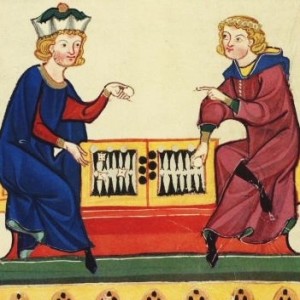
Tuesday Jul 16, 2019
Tuesday Jul 16, 2019
“There is nothing on this earth more to be prized than true friendship,” wrote St. Thomas Aquinas. In fact, he went on, “Friendship is the source of the greatest pleasures, and without friends even the most agreeable pursuits become tedious.”
Jesus made it clear that while the first and greatest commandment is to love God, the second is love for neighbor. And “neighbor” for Jesus even extends to enemies.
In the second part of the second part of the Summa Theologiae, St. Thomas Aquinas explored the question of love for God, neighbors, enemies, and friends.
At The Wyoming School of Catholic Thought, theologian Dr. Jeremy Holmes led us through Thomas’ thinking. Here, in part, is what he said.
Texts from St. Thomas Aquinas:
- Summa Theologae II.II, Question 23, Article 1; Question 25, Article 1; Question 26, Article 3
- Disputed Questions on the Virtues, Question 2, Article 2
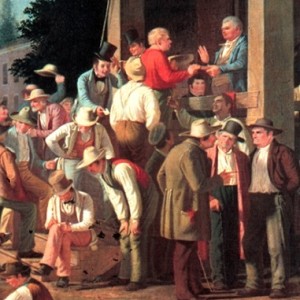
Tuesday Jul 09, 2019
Friendship and Politics by Dr. Virginia Arbery
Tuesday Jul 09, 2019
Tuesday Jul 09, 2019
When we think of politics, for most of us the word “friendship” is not the first thing that comes into our minds. Our politics are rancorous, ugly, polarized, and just about everything else politics is not supposed to be.
In spite of the rancorous, ugly, polarized politics of Ancient Athens, Aristotle suggested that what holds cities that is, the root of politics is friendship.
At June’s Wyoming School of Catholic Thought, Dr. Virginia Arbery looked at friendship and politics using The Politics by Aristotle. Here is some of what she had to say.

Tuesday Jul 02, 2019
"Friendship between Women: Jane and Elizabeth Bennet" by Dr. Tiffany Schubert
Tuesday Jul 02, 2019
Tuesday Jul 02, 2019
“‘My dear Jane,’ exclaimed Elizabeth, ‘you are too good. Your sweetness and disinterestedness are really angelic; I do not know what to say to you. I feel as if I had never done you justice, or loved you as you deserve.’”
“Miss Bennet eagerly disclaimed all extraordinary merit, and threw back the praise on her sister’s warm affection.”
One of the exemplary friendships we studied at this year’s Wyoming School of Catholic Thought was the friendship between Elizabeth Bennet and her sister Jane in Jane Austen’s Pride and Prejudice.
What characterized this friendship between women? Why is their relationship so appealing? And what can we learn from it to inform our own friendships.
Wyoming Catholic College Teaching Fellow Dr. Tiffany Schubert has been a Jane Austen fan and scholar for many years. Here is her presentation delivered this past June 10.
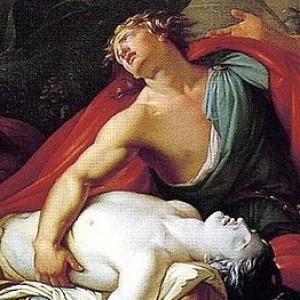
Tuesday Jun 25, 2019
Friendship Between Men in The Iliad and in Moby Dick by Dr. Glenn Arbery
Tuesday Jun 25, 2019
Tuesday Jun 25, 2019
When we came up with the theme for this year’s Wyoming School of Catholic Thought—“No Greater Gift: Friendship from The Iliad to Facebook”—we knew that we wanted Wyoming Catholic College president Dr. Glenn Arbery to discuss the friendship between Achilleus and Patrokolos in Homer’s epic.
What no one expected was that Dr. Arbery would pair the friendship between Achilleus and Patrokolos with the friendship Herman Melville described in Moby Dick, the strange friendship between Ishmael and Queequeg.
Here are Dr. Arbery’s comments.

